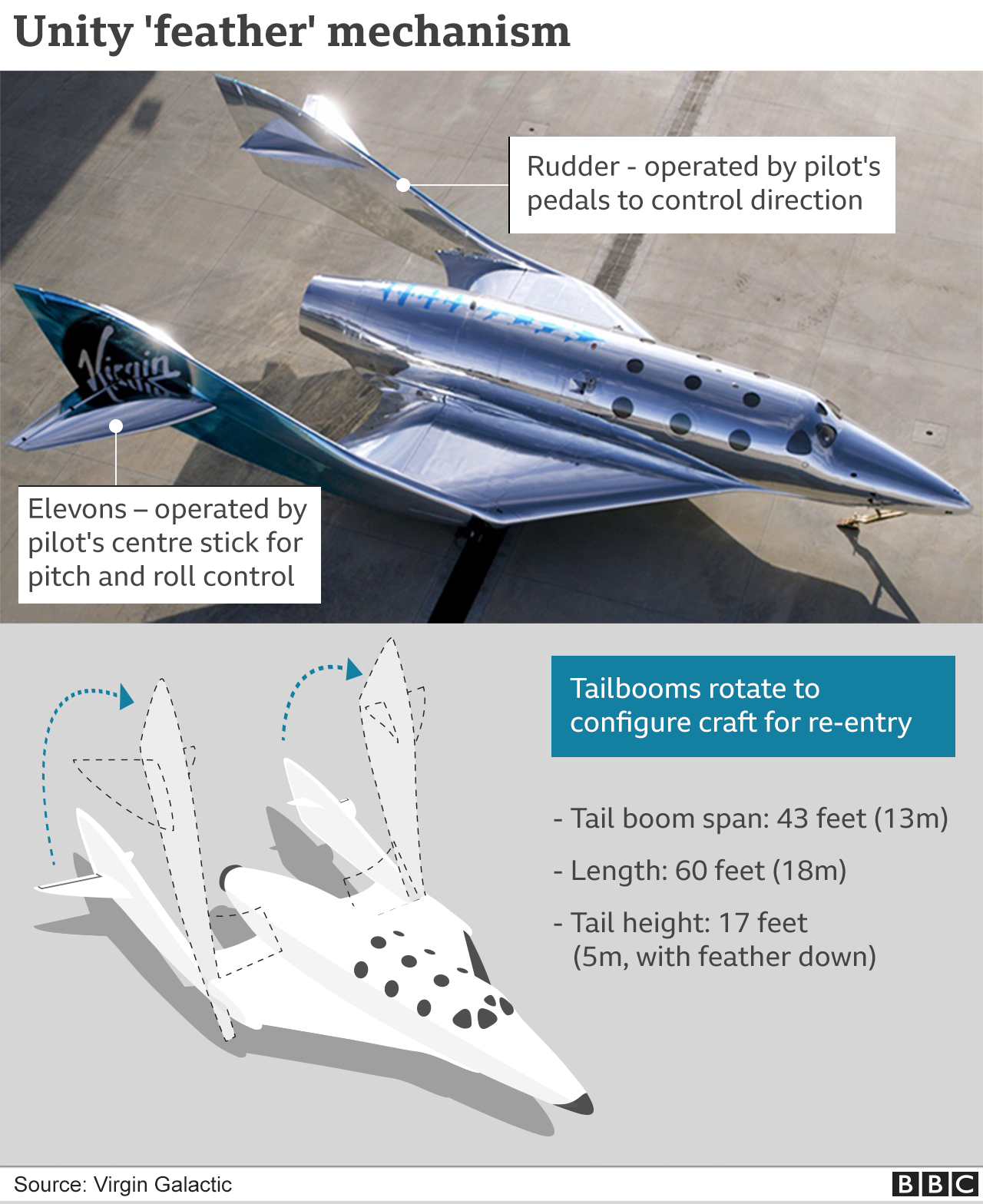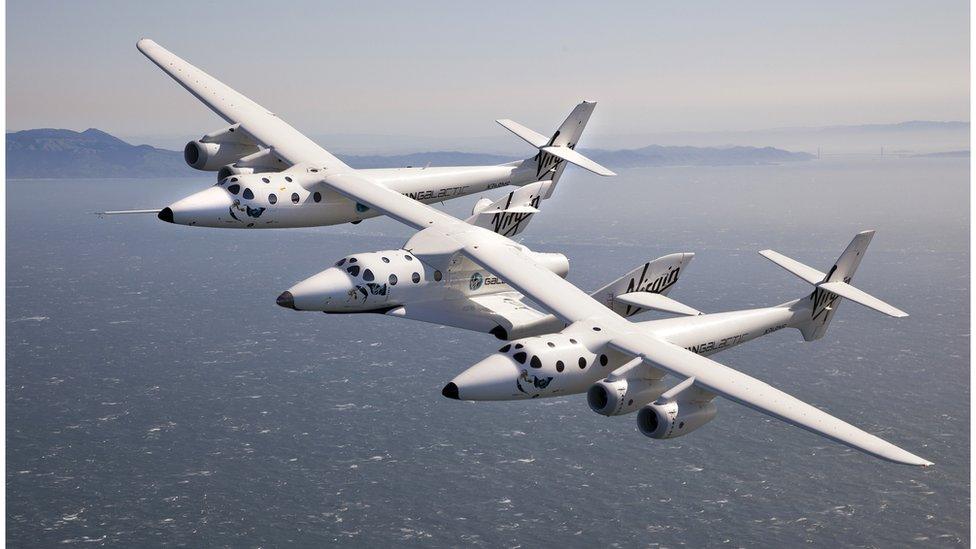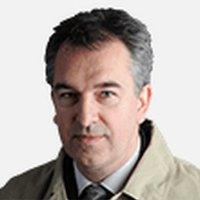Virgin Galactic flights grounded over Branson spaceflight 'mishap'
- Published

Unity encountered unexpected winds as it soared 86km (53 miles) above New Mexico
The US Federal Aviation Administration has grounded Virgin Galactic missions as it investigates how Sir Richard Branson's recent space flight drifted off course during its climb skyward.
The British billionaire fulfilled a lifetime ambition on 11 July by riding his rocket plane to 86km in altitude.
But the New Yorker magazine has revealed how the vehicle flew for a period outside its pre-agreed airspace.
Sir Richard's company has disputed the New Yorker's description of events.
The rocket plane, known as Unity or SpaceShipTwo, which carried Sir Richard aloft, landed safely.
In a short statement, the FAA said it was overseeing the investigation of the "July 11 SpaceShipTwo mishap that occurred over Spaceport America, New Mexico.
"Virgin Galactic may not return the SpaceShipTwo vehicle to flight until the FAA approves the final mishap investigation report or determines the issues related to the mishap do not affect public safety," it added.
In response to the FAA announcement, Virgin Galactic told the BBC it was cooperating fully with the aviation administration.
It took such issues very seriously, it said, and was working to determine how to prevent trajectory deviations from occurring on future missions.
Thursday saw the company announce details of the next Unity flight - a research outing for the Italian Air Force.
This had been scheduled for the end of September or early October, but must now await the results of the FAA probe.
Watch Sir Richard Branson's flight to the edge of space (and back)
The New Yorker article was penned by Nicholas Schmidle, who's written a book about Sir Richard's near two-decade effort to develop a rocket plane capable of taking fare-paying passengers above Earth's atmosphere.
Mr Schmidle's magazine story, external said the pilots on the 11 July flight - with Sir Richard and three other company employees sitting behind them - received cockpit warnings about the off-course trajectory of their rocket-powered ascent.
Left uncorrected, this shallower than planned climb to altitude could have left Unity unable to reach its landing location on the glide back down to Earth. Mr Schmidle claims company protocols for the cockpit warnings would normally have led to the pilots aborting the ascent, but that they pressed on instead.
Virgin Galactic had earlier on Thursday rejected what it described as "mischaracterisations" in the New Yorker's article.

The company said its pilots had encountered unexpected winds at high altitude and took the necessary actions to complete a safe climb to space and return to Earth.
"Although the flight's ultimate trajectory deviated from our initial plan, it was a controlled and intentional flight path that allowed Unity to successfully reach space and land safely at our spaceport in New Mexico," a company spokesperson told the BBC.
"At no time were passengers and crew put in any danger as a result of this change in trajectory, and at no time did the ship travel above any population centres or cause a hazard to the public."
The spokesperson said FAA representatives were present in the ground control room during the flight and in the post-flight debriefs.
The New Yorker magazine told the BBC it stood by its account of what happened on the day.

When Unity's next mission will now occur is anyone's guess.
This is meant to take aloft three Italian nationals - Walter Villadei and Angelo Landolfi from the Italian Air Force; and Pantaleone Carlucci, an Italian national research council engineer.
The men plan to conduct 13 scientific experiments during the flight, and in particular during those few minutes of weightlessness they'll experience at the top of Unity's climb.
Under the plan, the Italians are to be supervised in the back of the rocket plane by Virgin Galactic's chief astronaut instructor, Beth Moses. If and when it happens, the flight will be her third to the edge of space.
The Virgin Galactic pilots up front in the rocket plane are designated to be Michael Masucci and CJ Sturckow. Masucci was also in the cockpit for the 11 July mission, along with the company's chief pilot, David Mackay.
After this next mission, Virgin Galactic is expected to enter an extended period of maintenance and upgrades for both Unity and its carrier/launch plane, known as Eve.
If the schedule is not disrupted by the latest FAA ban, these vehicles are expected to resume space missions by the middle of next year. The company said one further test outing would be conducted before full commercial service began, probably in the second half of 2022.
Some 600 individuals put down deposits a number of years ago to buy seat tickets costing $200,000-250,000. Tickets sales resumed last month with prices from $450,000 (£325,000) per seat.

Unity and its carrier/launch plane, Eve, will undergo extended maintenance
